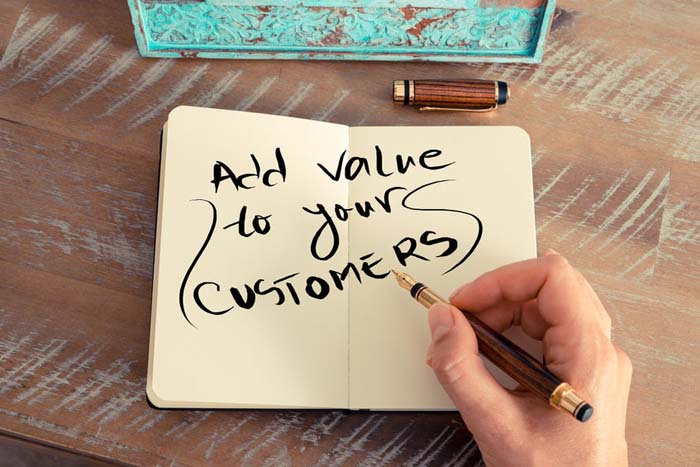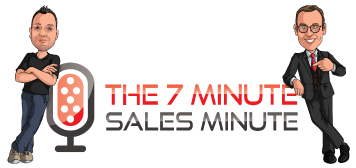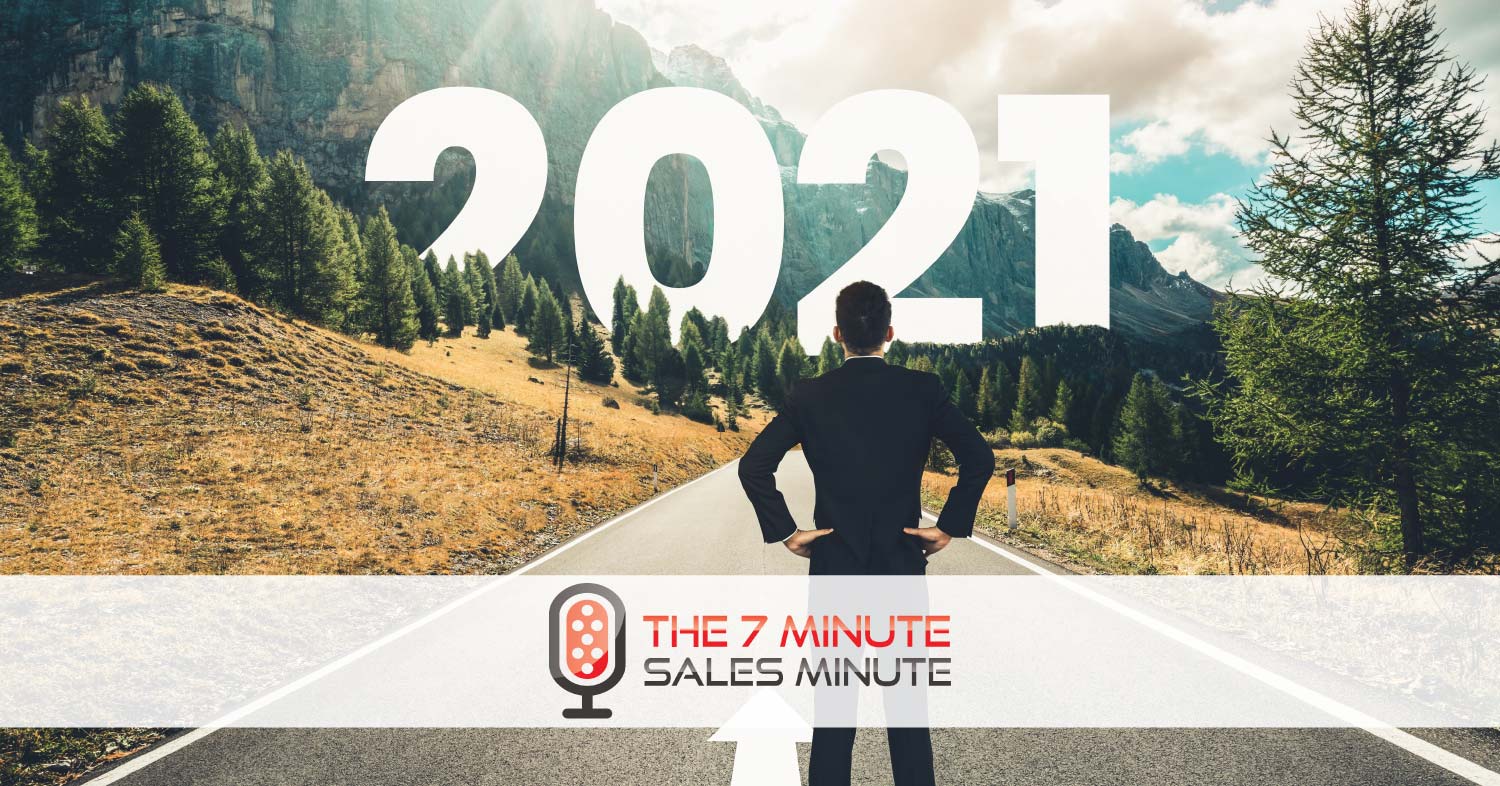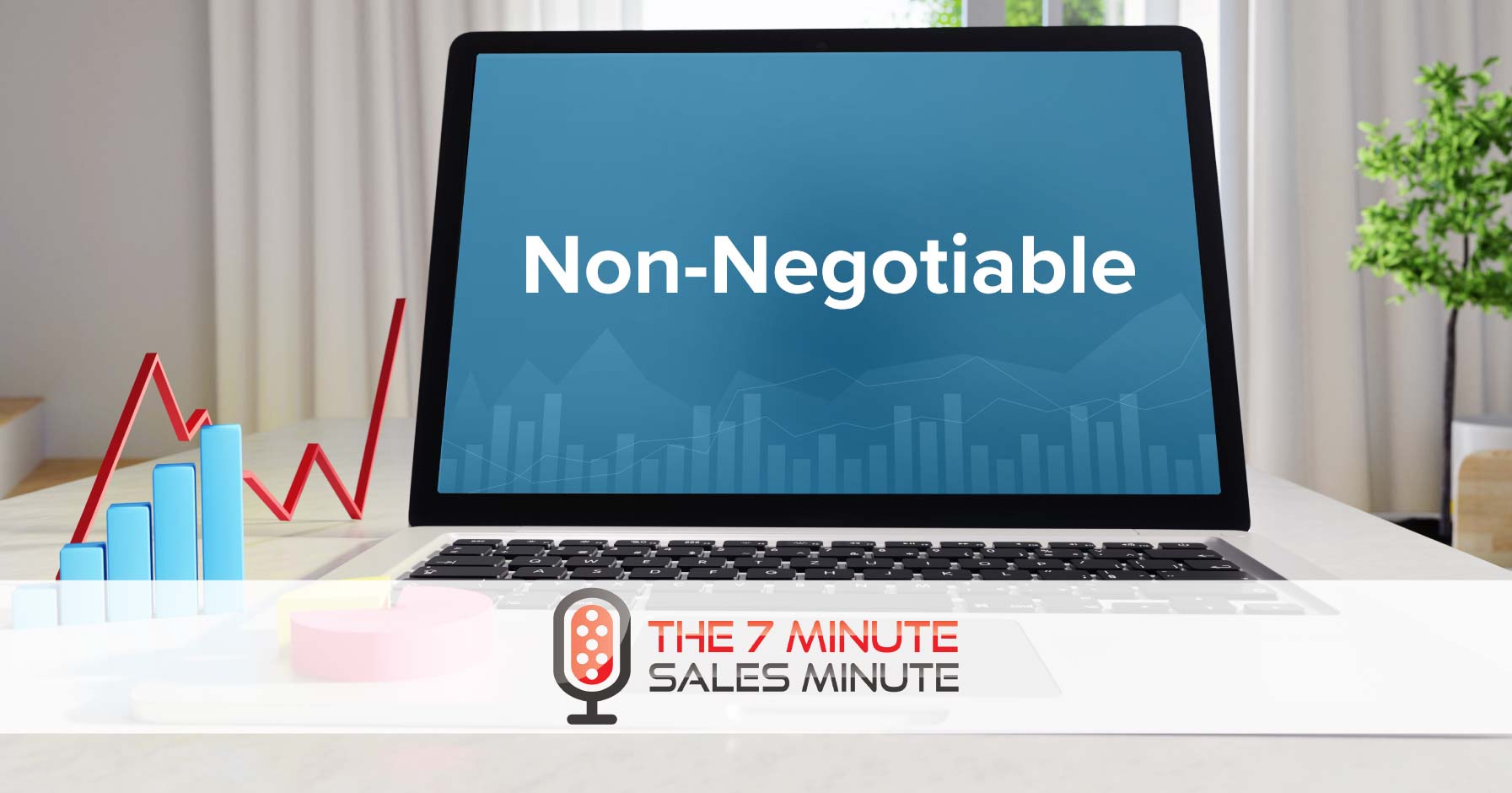
In this week’s episode, the guys return with a vengeance. It’s Season Three… now what?
Listen in as Scott and Jon discuss their tips and tricks for cultivating and nurturing relationships with prospects and clients.
Please take the time to visit out sponsor Audible.com for a free audiobook and a free trial 30 day membership.
Read the transcript
Hey, good morning, Jon.
Jon: Scott, good morning. How are you?
Scott: I’m doing great. How are you doing, man?
Jon: I’m doing great. I’m excited to kick off season three, and we had a little hiatus, and just ready and excited to be here.
Scott: The hiatus was good. We got a little bit refreshed. We recharged our batteries, so to speak.
Jon: Absolutely.
Scott: Folks, thank you for listening this week, and what we want to talk about is relationships and how to build relationships and maintain relationships with our clients.
Jon: It is. That’s a great topic.
Scott: We’re going to give you seven ways or seven things you can do to maintain and build relationships with your clients.
Jon: All right. Let’s start off with giving everybody a formula. The old economy was time equals money and it’s so common for people to say, “Oh, time equals money and da, da, da, da, da.” But really, in the new economy, it’s relationships equal money. How a relationship is defined is much different today than it was 50 years ago. It’s odd that a face-to-face meeting is a differentiator right now, but you really got to focus on what a relationship is. A relationship to me is, does a client make a move without you or does a client rely on you? Does a client keep on coming back to you for information? Are you generating business from that relationship? If not, then it’s just an acquaintance.
Scott: I agree. If they aren’t coming to you, then how can we get them to actually make sure that they know, hey, Jon is my guy when it comes to this or Scott is my guy when it comes to this. What can we do to get them into that mode?
Jon: Let’s start giving everybody a couple things to think about. We talked about giving them seven strategies. One of the things that I think we both think is important is how do you have the discipline to stay in front of your clients?
Scott: On the flip side of that same exact statement, having the discipline to stay in front of them the right way.
Jon: Correct.
Scott: And not be in front of them too much because one thing, I don’t know if you have that one email that you get every single day, and you’re like, “Why am I getting an email from this guy again?”
Jon: You got to be able to gauge your instincts on what a client needs, how often they need to hear from you. Some clients, they want to hear from you once a week. Some clients want to hear from you once a month. It’s not necessarily what they want, but it’s what they need. You got to make sure that you’re not a nuisance, but pay attention to the nuances of what the client needs.
Scott: I think it is a fine line, but you do want to make sure that you are in front of them. I actually have one guy that I did business with literally over 10 years ago, and every quarter I get a mailer from him, and I think I’ve talked about this in the podcast. I’m having déjà vu all over again here, but I think once every quarter I get an email with a recipe from him.
Jon: I remember the recipe.
Scott: It’s great. It’s a marketing piece, but at the end of the day, I know at least he’s got me in his Rolodex and he’s at least thinking about me a little bit. But things that we can do is I make sure that my clients get tips. They get market updates. Whenever something changes and a new products available, I let them know. If I know home values have gone up, being in the mortgage business, I always let them know that the values are going up in their area. We should definitely take a look because we want to do what we call a mortgage tune-up and make sure they’re doing the right thing.
Jon: Sure. Some of the things I do are knowing when to call and/or email just a client because sometimes you want to just tell them something quick. It doesn’t require a call, making sure that I’m face-to-face with people, but also, from a social media standpoint, one of the things I do is upload video tips on a regular basis so people have the option to go view it or not. I don’t email those out, but I’m always live and in person in a way for them.
Scott: That’s cool. One of the next things that we talked about is differentiate yourself. Don’t just always be the same person or the same stereotype of your industry. If you are in the landscaping business, don’t just give your bill about getting your lawn cut. Give tips on how to have a better lawn, how to better fertilize, things you can do, when to water, that sort of thing. Make sure that you’re adding value and differentiating yourself every single day.
Jon: You touched on this. I think this is critical. One of the biggest differentiators, I’m just going to restate what you said, is telling people what’s next, telling people how they should be thinking, telling people … Everybody’s in their day-to-day everything. Whatever they’re doing, they’re in it. One of the differentiators is tuning in and paying attention, like in your scenario, to give the options of, “Hey, if you do this fertilizer, it’ll do X, Y, and Z.” Just letting people know what’s next so they can get excited so they don’t have to think about it and being that resource to them. That’s a huge differentiator.
Scott: Absolutely. I think just in that example, I’m just looking at my crystal ball here and say, “I am that lawn guy.” If when I send my bill, I’m also sending that tip on fertilizing the lawn and what products to use and whatnot. I can pretty much guarantee that half the people I send a bill to, the next time I actually speak with them, are going to ask me if I offer that product.
Jon: Absolutely.
Scott: If I don’t offer it, it’s a great referral for me to refer out, but I might just want to start selling fertilizer because it’s definitely going to be good and it’s another way to add value.
Jon: You can never give away too much free information to people. I know some people worry about that. They worry about giving away too much information that’s free because they think that what else am I going to talk to them about or how can I refer the fertilizer? Maybe I’ll lose business, but you can’t have that mindset. Give away a ton of free information and let people do with it what they want because they can find it anyway. Let you be the portal and resource for finding that and distributing that information to your clients.
Scott: Exactly. The next tip we have is actually just piggybacking right off that last one. It’s always add value.
Jon: Always.
Scott: You actually hit the nail on the head. Giving stuff away for free does not necessarily hurt you. The old business mentality, the old shnore mentality.
Jon: Shnore.
Scott: Would be to just, “I’m going hoard it all and I’m not giving you anything for free, and if I’m going to give you something, I’m going to give you billable hours and make sure I’m charging you for every single thing,” but nowadays, like you said, it’s available anyway.
Jon: I hate the shnores, number one.
Scott: That’s a good word, too.
Jon: I hate the shnores. The recipe for that, and I actually follow this in my business, is if 90% of what you do is telling people what they need to do or what they need to think about, the 10% that wants to know how to do it, those are your clients. There’s huge value in giving away free information because they’re going to look to you to figure out how to do it, how to implement, how to create it, and that’s where the business comes in.
Scott: Very nice, Jon.
Jon: Thank you, Scott.
Scott: What’s next? What do we got?
Jon: Next is having a clear message. We’ve talked a little bit about marketing and branding and messaging, but I don’t think we’ve ever really used the word messaging here in the podcast, but understand that you need to make sure that your clients understand what your message is, what you do for a living, and what you do for them and the value that you bring. When you walk out of their office, when you hang up the phone, how are they going to, in a sentence, articulate what you do to somebody else?
Scott: Nice. What’s your elevator pitch?
Jon: Correct.
Scott: Make sure they know that and make sure that they can actually become a mouthpiece for you.
Jon: Or just what’s your elevator sentence or what’s the one word that you want to own in the client’s mind. You have to determine what that message is.
Scott: It’s very important when it comes to referrals, as well. Make sure that they know exactly what you do. You don’t need to tell them how you do it, but they need to know exactly what you do and what you’re offering and what they’re getting for their dollar.
Jon: I think the next one is absolutely critical. It is a, excuse me, huge differentiator, and that’ll always be available.
Scott: It’s huge when you-
Jon: Huge.
Scott: When you think about that, and there’s nothing worse than needing to get in contact with somebody and you have to leave them a message and they’re not in and you’re starting to get stressed and then an hour later, you’re like, “Gosh, I really need Jon to call me back.” You call and, “Sorry, he’s not in. He’s with a client.” When he’s really on a golf course or he’s really at the gym or whatever. Be available for your clients and your customers. It’s very important. If they have a question, that’s the most important thing to them at that moment. Make sure they know how to get in contact with you. Make sure they know how to get their answers. Make sure that they know how to get in contact with you when they’re ready to buy.
Jon: Because you spend tens of hours with a client and you can actually destroy that entire relationship in 30 seconds by not being available. In today’s world, if you can’t shoot somebody a text, an email, a voice message that you can email, there’s no excuse not to follow up and let people know where they stand and where you are and when you’ll get back to them.
Scott: I actually have a great story about this, this exact thing. Jon and I are sitting in my home office right now and when I look over, I’ve got my work phone from my work desk. It actually rings at home. Yesterday, I logged in for a moment because I keep my phone turned on almost all the time. I logged in for a second just to check on some paperwork and literally, out of nowhere, I got this random phone call. I had no idea, I didn’t recognize the number, but I picked it up and I ended up doing business with this guy.
Jon: Outstanding.
Scott: Someone I talked to during the week and didn’t think he was going to come back at all, and I think he probably maybe had been calling to blow me off. “Hey, I’ll call this guy on Saturday at 5 o’clock on a Saturday.”
Jon: [crosstalk 00:10:50]
Scott: “He’ll never be there. I’ll just leave him a message and say, ‘See you later, sucker.'” Then I picked up and he was like, “Whoa.” We talked.
Jon: That’s great.
Scott: I ended up doing business with this guy out of the blue. Being available for your clients is amazingly huge. It really is, which brings us-
Jon: I just want to say one thing, too, because I think it’s, and we have talked about this, sometimes you got to turn it off. People are so accessible today that sometimes you just got to turn it off. That being said, you always should, if you’re there … I love that story because if you’re there when your clients don’t think you should be there, then that’s a huge differentiator.
Scott: Absolutely.
Jon: I am always returning calls and emails over the weekend and at night. There’s nothing better than when a client emails you at 10 or 11 o’clock at night or even if you’re up at 2 in the morning for weird reason, and you reply back at some odd hour. It’s huge because your client knows that you always got their back and you’re always there for them and it’s a huge differentiator.
Scott: Don’t get it twisted on this. At the end of the day, when I say I’m always available, my desk phone is always on, I have caller ID, so if I don’t want to talk to someone, I’ll call them back during business hours and I have that built-in excuse for myself, but if I don’t recognize the phone number and it’s someone in a city that I was like, “You know, I did talk to that guy in Anaheim yesterday. Let me answer the phone and see what he wants.” It does. It helps a lot, but if I really don’t want to talk to someone, I know that it’s someone that just has the same question they’ve had 15 times, they can talk to me Monday morning. That’s fine.
Jon: But another option of that is you get the message and you just shoot them an email that says, “Hey, got your message. I’m out of pocket. I’ll call you Monday morning.”
Scott: Exactly.
Jon: At least they know where they stand.
Scott: Exactly.
Jon: So they can get it out of their head.
Scott: Perfect.
Jon: All right.
Scott: All right. Last, but not least, this one’s huge. Having Jon and I talking about this, I think it goes a mile or a thousand miles, is make them laugh.
Jon: Absolutely.
Scott: People want to work with people that they like. It’s a proven fact. If every time someone talks to you, they’re like, “I got to talk to this Jon guy again,” and it’s like nails on a chalkboard, they’re not going to pick up the phone the next time you call.
Jon: Listen, maybe I’m biased and we’ve been friends for 40 years, but I think we’re both really funny people so it makes it easier. If you’re not funny, try to figure out where you can at least make people laugh.
Scott: Exactly.
Jon: If you got to practice it, practice it, but hopefully it comes naturally, but absolutely make somebody laugh through your client.
Scott: If you can’t make them laugh, if you’re not a funny person, if you’re just dry and boring, leave them with candy. As long as they know that-
Jon: Something bought.
Scott: You don’t want it to be a painful conversation every time you talk to them.
Jon: Depending on the client, too. You team up with somebody and go with somebody else to the meeting that is funny.
Scott: Or you could always wear a clown nose or something. Carry one of those horns. Whatever you have to do, but make it fun for the client. Entertain your clients because they do, they want to be entertained. They want to work with someone they like.
Jon: Absolutely.
Scott: Plain and simple.
Jon: All right. These are seven solid tips.
Scott: Jon, you know what? I agree. It’s not just because we wrote them. I do agree. There are seven solid tips here. Please, implement these in your day-to-day, folks.
Jon: Absolutely. Implement them, enjoy them, and have fun with them.
Scott: Once again, thanks for tuning in or listening or downloading our most recent episode of The Seven Minute Sales Minute. Please, enjoy.
Jon: All right. Thanks so much. Have a great day.
Scott: Thank you.
Thank you for listening to this episode of The Seven Minute Sales Minute. For show notes and worksheets pertaining to these week’s show, check us out at TheSevenMinuteSalesMinute.com. Take today’s strategies and run with them. Increase your sales and increase your income.




